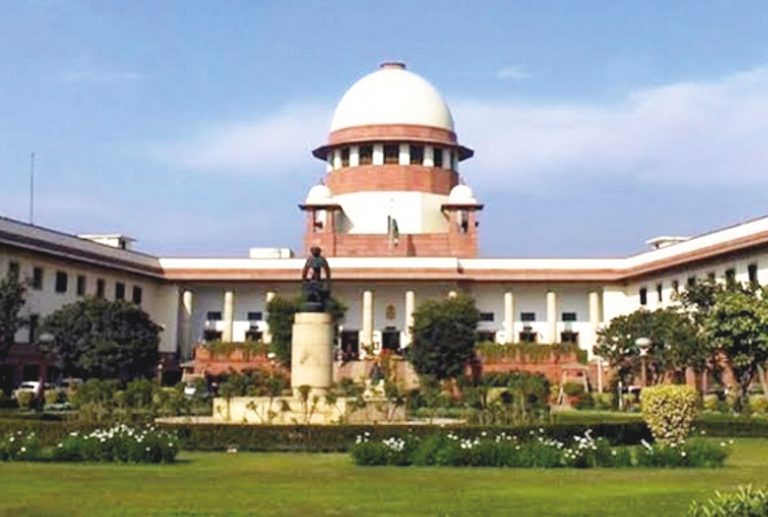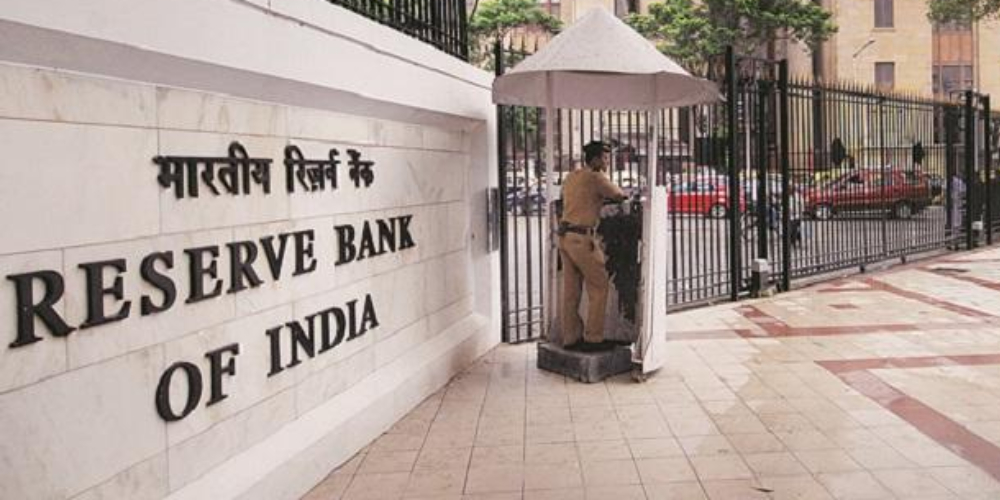Crypto vs RBI: Exchange Counsel and RBI Take Center Stage at Supreme Court Today
Publikováno: 22.1.2020
 India’s supreme court spent all day on Wednesday hearing extensive arguments from both the counsel representing crypto exchanges and the central bank, the Reserve Bank of India (RBI). The counsel for the central bank confirmed again that cryptocurrency is not banned in India, but still justifies the banking restrictions on the crypto industry. Also read: […]
India’s supreme court spent all day on Wednesday hearing extensive arguments from both the counsel representing crypto exchanges and the central bank, the Reserve Bank of India (RBI). The counsel for the central bank confirmed again that cryptocurrency is not banned in India, but still justifies the banking restrictions on the crypto industry. Also read: […]
The post Crypto vs RBI: Exchange Counsel and RBI Take Center Stage at Supreme Court Today appeared first on Bitcoin News.

India’s supreme court spent all day on Wednesday hearing extensive arguments from both the counsel representing crypto exchanges and the central bank, the Reserve Bank of India (RBI). The counsel for the central bank confirmed again that cryptocurrency is not banned in India, but still justifies the banking restrictions on the crypto industry.
Also read: Crypto vs RBI — 3 Days of Intense Supreme Court Hearings
All-Day Hearing at Supreme Court
The Supreme Court of India resumed hearing the crypto vs. RBI case on Wednesday. Local news and regulatory analysis platform Crypto Kanoon reported that Nakul Dewan, the counsel representing a number of crypto exchanges, opened his arguments by countering the RBI’s claim that crypto has no intrinsic value. He argued that by the same logic fiat currency also has no value since gold backing has been removed. The counsel also gave an overview of how money was developed. While agreeing that there are risks, he read out a report outlining alternative measures to banking restrictions, emphasizing that crypto is not banned in India.

Dewan proceeded to discuss the effects of the RBI ban, citing the government’s earlier statement that banning will reduce the ability of law enforcement agencies to monitor crypto activities. He explained to the judges how the crypto exchange business works, noting that the business is completely dependant on the banking channel. Dewan compared cryptocurrencies to airline miles which people could use and redeem for other services, adding that the RBI does not stop these similar arrangements. The court questioned if the two are really the same; the counsel insisted that both have the same economic nature.
Crypto, Medium of Exchange, RBI’s Power to Ban
Dewan told the court that “There are 2 things that a crypto does. Its creation is that of a ‘good’ by the work of validation. Another is the medium of exchange for the group of people who recognize value in it,” Crypto Kanoon conveyed. The judges responded by saying that if crypto is a medium of exchange then it must be controlled. The counsel argued that the legislature is aware that it can be used as a medium of exchange, but did not choose to pass any law.
The counsel read out several judgments by various courts worldwide that crypto is not money, such as in the U.S. and Singapore. He discussed the definition of goods from the Indian Sale of Goods Act before bringing up the Banking Regulation Act to challenge the powers of the central bank to place a banking restriction on the crypto industry.

In its response to the petitioners’ representation, the RBI wrote in one place that “technological innovations like VCs [virtual currencies] not to be encouraged,” according to the news portal. Dewan asserted that it is not within the RBI’s power to encourage or otherwise. The central bank’s response further states that “we are restricting you because you are convertible to legal tender at entry and exit levels.” The counsel told the court that this statement applies to all kinds of other schemes including airline miles. He referred to the Doctrine of Proportionality before concluding his arguments.
RBI’s Turn to Present Arguments
Next, Shyam Diwan opened his arguments on behalf of the central bank which claims to have acted with the input of other regulators and domestic needs. He referenced the view of the interministerial committee (IMC) which drafted the bill to ban cryptocurrencies. Crypto Kanoon quoted Diwan as saying:
Our [RBI’s] purpose is to adopt nip in the bud approach in order to ensure that payment system is protected and other alternates are not allowed to pop up in the economy. And we are empowered by law for this.
Diwan asserted that “Crypto could be a store of value or commodity, but we see it as a digital means of payment. Crypto ecosystem may affect the existing payment system and influence the economic policy,” the news platform also reported. “I am not a crime detector or a tax collector. But since I am the protector of monetary policy and the monitor of cross border transactions, it comes under my domain to restrict this in the interest of monetary policy,” the counsel added. The central bank has listed many risks associated with cryptocurrencies such as money laundering, tax evasion, and terrorist financing.
The counsel also discussed the size of the crypto market and the history of cryptocurrency, including Satoshi Nakamoto, which the judges shared their knowledge. The RBI claims that “crypto payments take place in peer to peer system without an authorized agency which expose the user to the risk of having no legal recourse,” the news outlet noted.

After the lunch break, Diwan read out some crypto-related announcements by the central bank and referred to the definition of virtual currencies, the Financial Action Task Force (FATF) guidelines, and the challenges in dealing with cryptocurrencies for law enforcement. He mentioned terrorist financing and consumer protection issues, adding that growing crypto investments can lead to reduced bank reserves, Crypto Kanoon detailed. The counsel claims that even a small challenge may result in several adverse effects given the complexity of the financial market, citing an RBI Financial Stability report which explains the complexity of the monetary system.
Diwan referred to the recommendations by the inter-disciplinary committee which previously issued a warning to crypto exchange users. The judge then asked about the Crypto Token Bill 2018 which was drafted based on the recommendations of the inter-disciplinary committee report dated 2017. The counsel revealed that the recommendations were not accepted and the interministerial committee was formed. Diwan further claims that the central bank conducted a detailed study before taking action. According to Crypto Kanoon, the counsel described:
RBI recognizes that crypto is negligible today but it will undermine the formal payment system … For the total economy, it may be small but it has immense potential to impact the system including cross border capability.

The judge asked whether virtual currencies are legal. The counsel clarified that “in India, VCs are not illegal and there is no ban in place. No prohibition.”
However, the counsel insisted that the RBI has the power to maintain financial stability, referencing a few research papers, including the minutes of an IMC meeting which concluded that crypto should be banned. The Securities and Exchange Board of India (SEBI) said during that meeting that the use of virtual currencies is “likely to grow and due to its nature, regulating it by a single regulator would not be feasible,” the news outlet detailed.
Diwan proceeded to read out the IMC report, including the draft bill entitled “Banning of Cryptocurrency & Regulation of Official Digital Currency Bill 2019.” However, it has been almost a year since this bill was drafted and submitted to the government, but it has yet to be introduced in parliament. The crypto community in India believes that this bill will not be introduced since it is flawed in many ways. The counsel also read from the report the use of initial coin offerings (ICOs) as an alternative to traditional financing methods for startups. The differences between fiat money and virtual currencies were also discussed. The RBI counsel is expected to continue his arguments on Thursday.
What do you think of the supreme court hearing today? Do you think the court will lift the RBI ban tomorrow? Let us know in the comments section below.
Disclaimer: This article is for informational purposes only. It is not an offer or solicitation of an offer to buy or sell, or a recommendation, endorsement, or sponsorship of any products, services, or companies. Bitcoin.com does not provide investment, tax, legal, or accounting advice. Neither the company nor the author is responsible, directly or indirectly, for any damage or loss caused or alleged to be caused by or in connection with the use of or reliance on any content, goods or services mentioned in this article.
Images courtesy of Shutterstock.
Did you know you can buy and sell BCH privately using our noncustodial, peer-to-peer Local Bitcoin Cash trading platform? The local.Bitcoin.com marketplace has thousands of participants from all around the world trading BCH right now. And if you need a bitcoin wallet to securely store your coins, you can download one from us here.
The post Crypto vs RBI: Exchange Counsel and RBI Take Center Stage at Supreme Court Today appeared first on Bitcoin News.